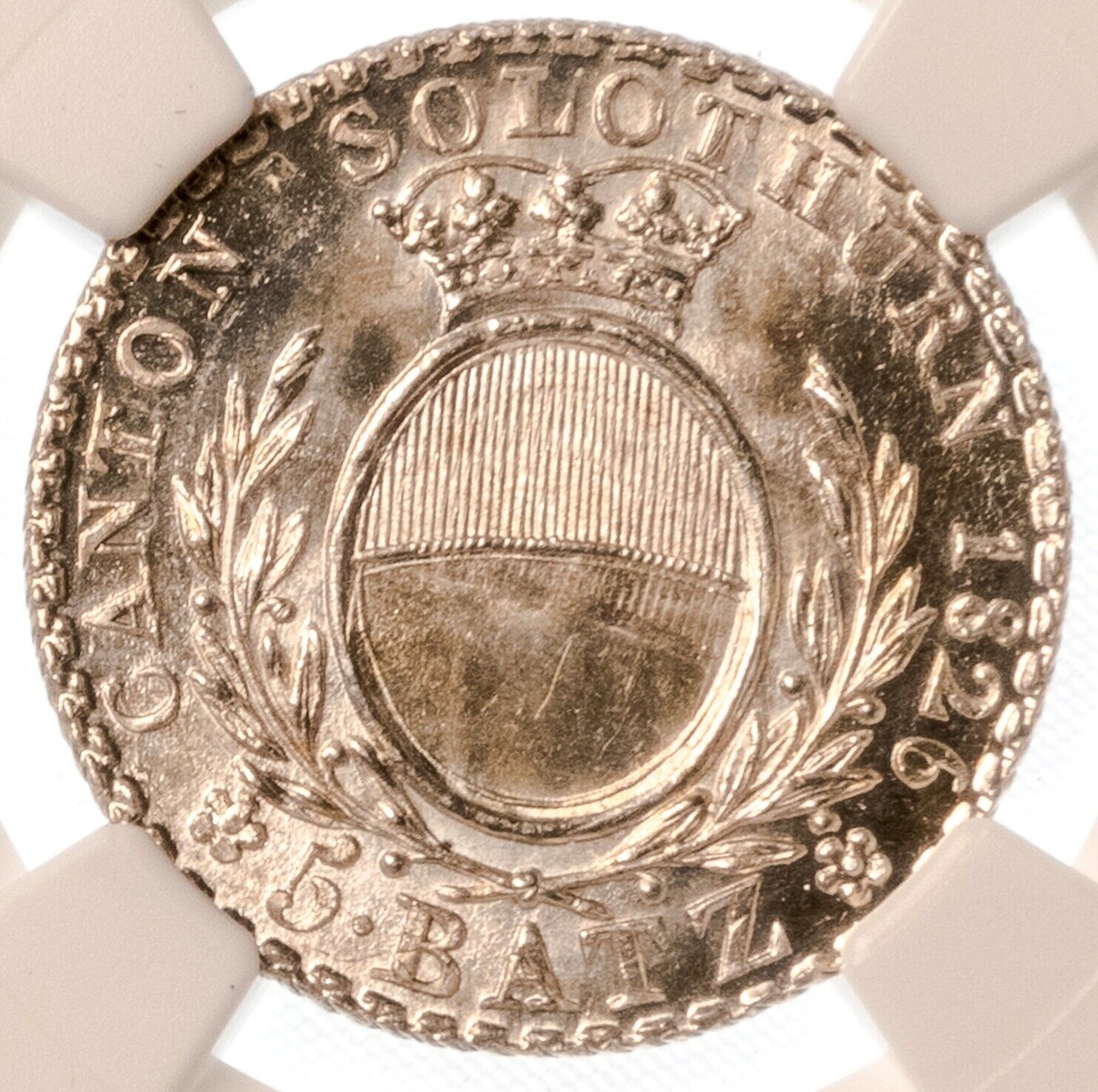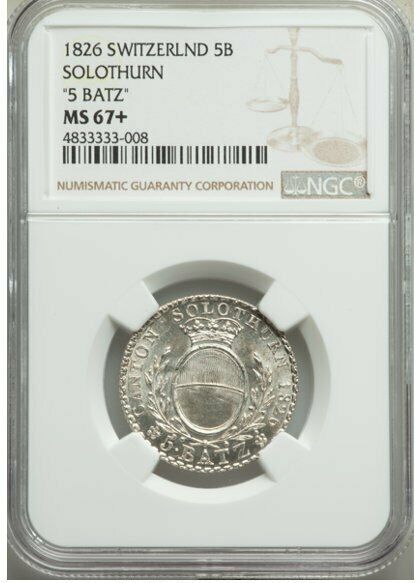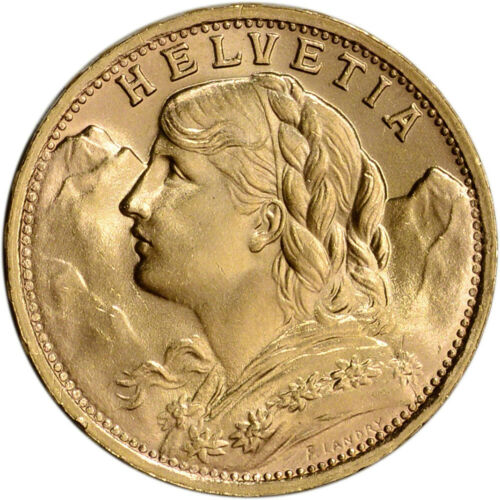-40%
Switzerland Solothurn Canton 5 Batzen 1826 NGC MS67+ Gleaming White Coin !
$ 316.27
- Description
- Size Guide
Description
Switzerland, Solothurn. Canton 5 Batzen 1826,KM82.
Gleaming white surfaces and sparkling devices on this stunning coin.
NGC MS 67+
Census [2/0]
([1/0] considering + designation)
Total of 8 graded by NGC. Population [0/0] Total of 5 graded by PCGS. Very rare at this grade.
Please ensure you view our high resolution photos.
Combined shipping available.
Solothurn (/ˈsoʊlətʊərn, ˈzoʊ-/ SOH-lə-toorn, ZOH-, German: [ˈzoːlotʊrn]; French: Soleure [sɔlœʁ]; Italian: Soletta [soˈletːa]; Romansh: Soloturn) is a town, a municipality, and the capital of the canton of Solothurn in Switzerland. It is located in the north-west of Switzerland on the banks of the Aare and on the foot of the Weissenstein Jura mountains.
The town is the only municipality of the district of the same name.
The town got its name from Salodurum, a Roman-era settlement. From 1530 to 1792 it was the seat of the French ambassador to Switzerland. The pedestrian-only old town was built between 1530 and 1792 and shows an impressive array of Baroque architecture, combining Italian Grandezza, French style, and Swiss ideas. The town has eighteen structures listed as heritage sites.
Agriculture, once the dominant sector of employment, has become almost non-existent. Most people today are employed in manufacturing and education.
The official language of Solothurn is (the Swiss variety of Standard) German, but the main spoken language is the local variant of the Alemannic Swiss German dialect.














